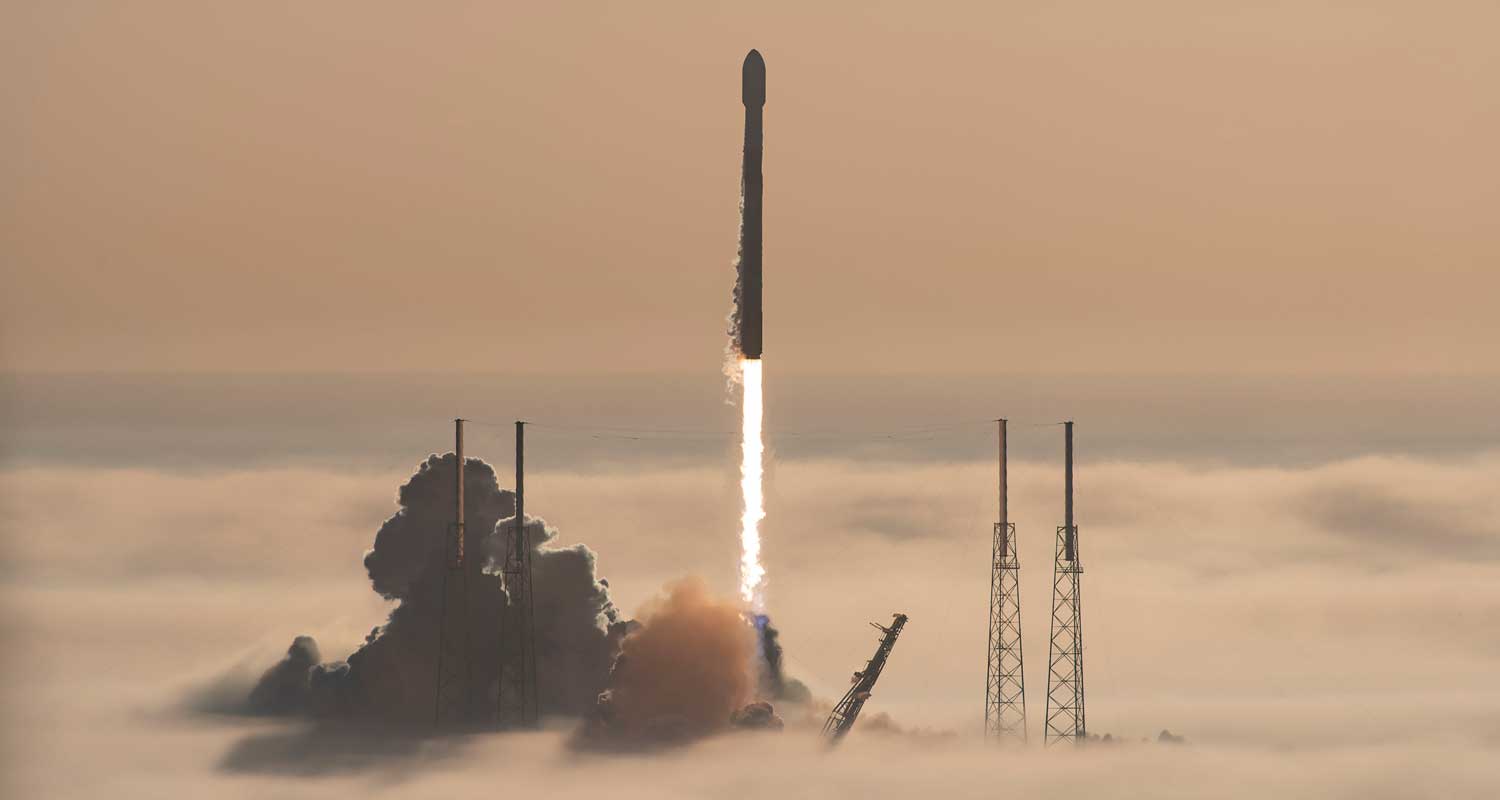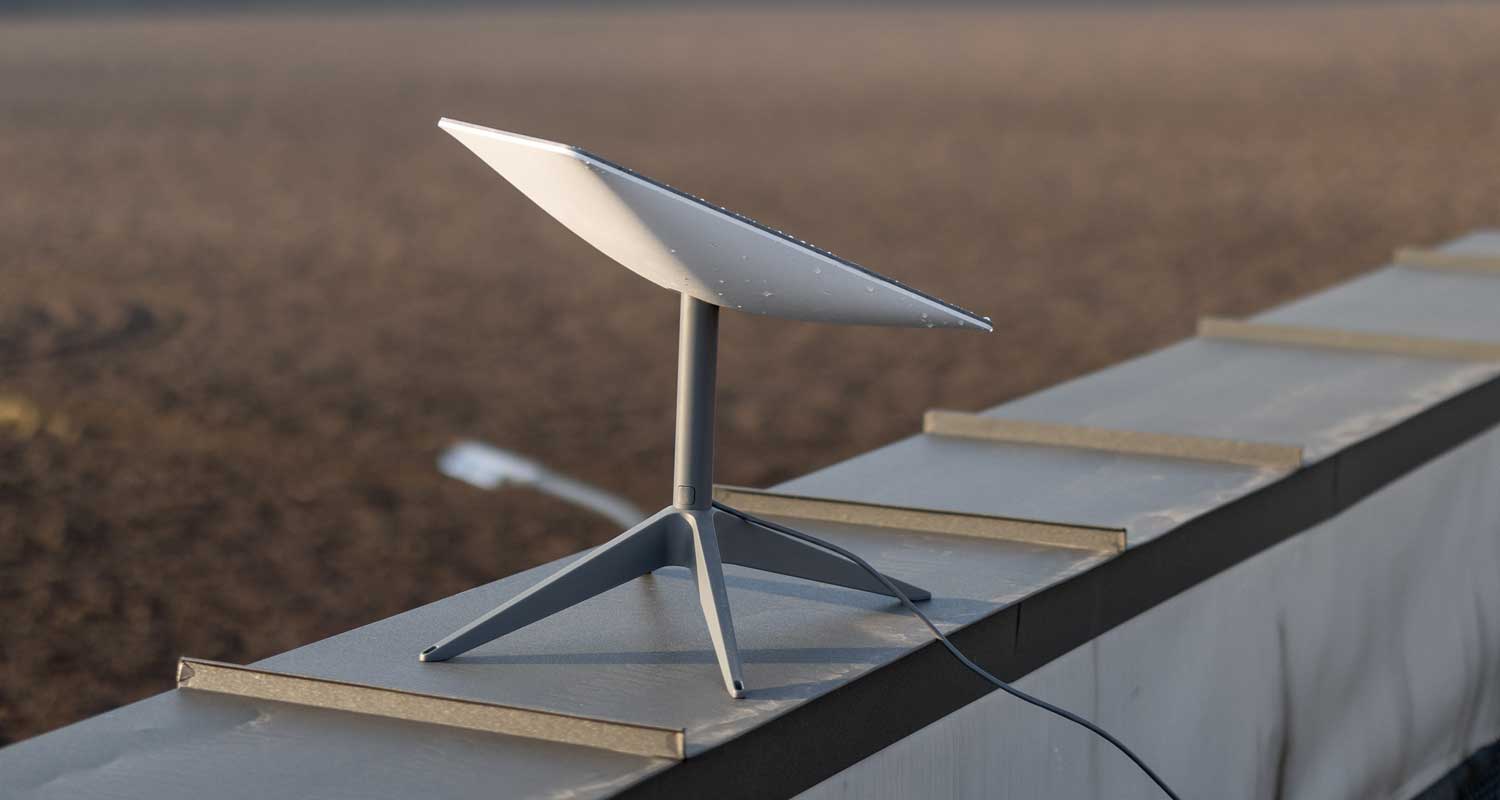
Low-Earth orbit (LEO) satellite solutions like SpaceX’s Starlink are promising to connect every corner of the planet. But could they also threaten mobile operators such as Vodacom and MTN?
Starlink and other LEO services, including Amazon.com’s Project Kuiper, present the opportunity to provide high-speed internet connectivity in remote areas where terrestrial telecommunications infrastructure such as mobile broadband and fibre is either impractical or too expensive to deploy.
“Terrestrial solutions give you very good performance,” said Vodacom executive head of innovation Jannie van Zyl in an interview with TechCentral.
“In South Africa, for example, 99.5% of the population has 4G coverage, which gives you high reliability, performance and capacity. The business case for infrastructure roll-out in areas like the Northern Cape where you only have four people per square kilometre is weak; we would never get our money back. So, what happens when we put the network in the sky? You can cover a larger area that way, but since you won’t have the same capacity, your throughput will be lower.”
The technologies are complementary, said Van Zyl.
Vodacom Group, along with parent company Vodafone Group, has reached an agreement with Project Kuiper to use LEO satellites to bolster network coverage in underserved areas.
In the South African context, however, increased levels of load shedding have put the reliability argument for terrestrial mobile broadband solutions to the test.
Satellite’s challenges
Once deployed, satellites are not reliant on grid-based power and backup power is not needed. Similarly, unlike base stations, they are not susceptible to vandalism and theft, which impacts network availability. Although this strengthens the argument for a move from terrestrial to satellite, the technology has its own set of challenges.
“The satellite is further from the user device than your terrestrial tower normally would be, so latency is a problem, although Starlink and Kuiper have latencies similar to 3G and 4G,” said Van Zyl. Latency refers to the network roundtrip time for a packet of data.
Read: Vodacom in deal with Starlink rival, Amazon’s Project Kuiper
“LEOs are closer to Earth than geosynchronous (GEO) ones used for television but cover a smaller area. And while GEOs maintains its position over a certain area, LEO orbits at around 25 000km/h. That can cover a specific region for only a few minutes every revolution, so a constellation is needed for continuous coverage over that area,” he said.
The deployment of a constellation of LEOs large enough to ensure continuous coverage is very costly. However, the economies of scale “work over the whole planet”. It will take significant investment and worldwide adoption for these benefits to be realised, which will also take time, Van Zyl added. To speed up the process, satellite service providers will have to interoperate in sophisticated ways to share workloads across their infrastructure.

But would achieving all that present a threat to mobile operators? “No,” said Dawie de Wet, CEO of satellite specialist Q-KON.
“There are other problems [with satellite], with emergency satellite connectivity for mobile as an example, you have low data transfer because the bandwidth is so low. For a good link between the device and the satellite, you need a lot more power so that the signal is strong.”
Read: Minister rubbishes DA claim that ANC is blocking Musk’s Starlink
Regulatory minefields also pose significant challenges for LEO service providers. In April, former Democratic Alliance shadow minister of communications Dianne Kohler Barnard accused the ANC of effectively blocking the launch of SpaceX in South Africa through its empowerment policies.
“The LEO guys have to deal with different regulations in every single market that they want to enter and it is easier for them to collaborate with mobile operators,” said De Wet. – © 2023 NewsCentral Media

